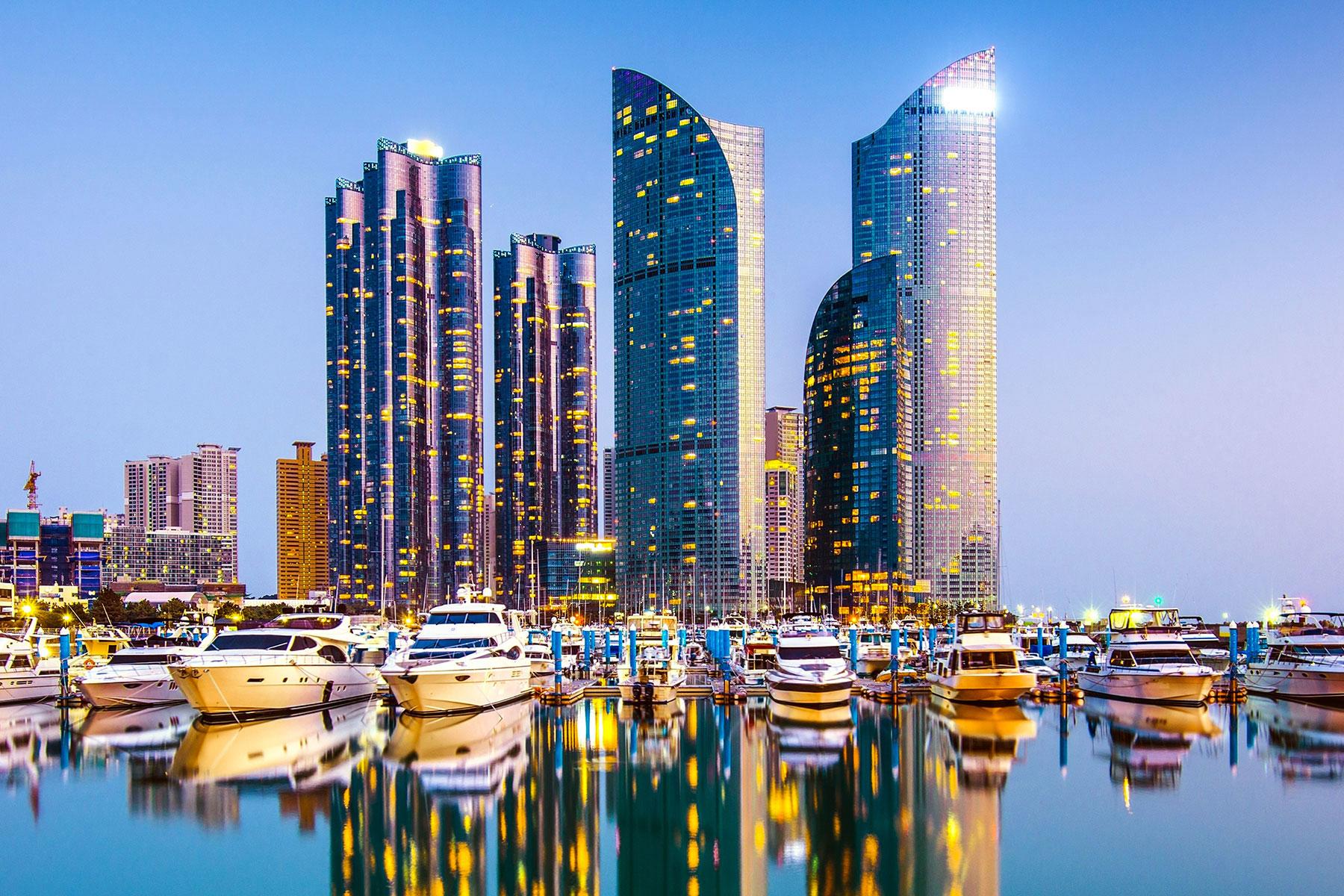Dreaming of being an ex-pat in South Korea? Now might be your chance.
One of the biggest (and most stressful) problems for travelers is having the right documents to enter and stay in a country. Perhaps you’ve even watched the television show Border Control, wincing at the very thought of traveling halfway across the world—only to be turned away for not having the right visa. It definitely pays to do your research before traveling abroad.
While there are many rules, mandates, and restrictions for travelers who want to work while overseas, fear not. If your dream is to live in South Korea for more than 90 days (as it stands for Americans), you now have your chance—the country just launched two new visas, with one set to roll out later this year (and in the words of BTS, you have permission to dance if you have a passion for arts and culture).
First Things: What Is a Digital Nomad Visa? Which Countries Have It?
A digital nomad visa is a temporary residency permit that allows international visitors more freedom. Most countries only allow travelers to enter for 90 days, and no, you can’t work, but under a digital nomad visa, online professionals can work remotely. The beauty of it is that it can last up to two years, depending on where you apply.
Recommended Fodor’s Video
Every country has its own digital nomad visa requirements, and you still need to have the right documents and meet certain expectations before being approved for the visa. Despite it being quite competitive, the good news is that it is much easier now because many countries started offering digital nomad visas post-pandemic, with the working-from-home culture becoming mainstream.
As more travelers look at blending business with leisure, the possibility of working remotely just got easier from a traveler’s standpoint with less red tape to navigate. According to William-Russell, an international life insurance firm, almost 50 countries allow you to work from home and offer digital nomad visas. The figure could be much higher with countries like Estonia, Barbados, Georgia, United Arab Emirates and now South Korea launching new digital nomad visas in the last 12 months.
Greece and Spain are apparently the easiest digital nomad visas to get, but the soon-to-be-launched K-pop visa, which differs from the country’s digital nomad visa, definitely seems like the most appealing when compared to the labor-intensive working conditions spent on a fruit or cattle farm under the blistering Aussie heat.
What Is South Korea’s Digital Nomad Visa and K-Pop Visa?
According to the Justice Ministry in Korea, South Korea launched its digital nomad visa earlier this year to encourage more travelers to South Korea.
“To make remote work and vacation of foreigners in Korea smoother, we have decided to launch a new digital nomad visa,” the Justice Ministry said in a release while pointing out the rise of the workcation trend. “So far, foreigners were required to apply for tourist visas or just stay for less than 90 days without a visa for ‘workcation’ in Korea. The new system will allow employees and employers in overseas firms to tour and work remotely in Korea for a longer period of time.”
South Korea’s digital nomad visa is only temporary but if you can’t meet the hefty requirements of proving a $76,000 annual income salary, cover at least 100 million KRW ($73,000) in health insurance, and are able to provide the various documents you need to make the cut, you might want to hold off and wait for the K-pop visa which will come out later this year.
Why Did South Korea Release a K-Pop Related Visa?
Chances are you’ve heard of the K-pop band, BTS, and may have even spent hours binging on Korean dramas on Netflix. But if you wanted to live the drama in real life, the K-pop or more specifically, the K-culture visa might be for you.
The South Korean government is heavily investing in their arts and culture industry to help promote tourism in the new Asian capital of cool. You may remember Psy, who tickled us with his catchy lyrics “Gangnam-Style”; well, that song drew attention to the entire neighborhood of Gangnam, which is a seriously cool district with bars, clubs, eateries, and shopping.
The government feels that if one song can put South Korea on the map, imagine what BTS, Parasite, and Squid Game can do for their tourism industry. Not only this, Korean culture has had a huge amount of interest from non-Koreans with research showing more than 37 million searches over the course of three years for K-culture activities.
For Jongwon Son, executive chef at Eatanic Garden, there’s more to just Korean culture than popular television dramas and well-synchronized dance moves, and he wants to share his cultural roots through food.
“Idol culture, K-drama, or what you see on Netflix is not everything about K-culture. There is so much more beauty and coolness in Korea that is relatively unknown,” says the dual-Michelin-starred chef. After spending his childhood and teenage years in San Francisco, Son returned back home to not only learn more about his own culture but to help spread the word.
“Our food is deeply cultural and a great medium to share our traditions with people who are unfamiliar with it. K-food has been passed down for thousands of years and is full of sincerity and history and my goal is to study our culture in depth and share it with my guests,” says Son. “Korean cuisine is something I have been raised with and where my roots belong. For me, there is no better time or place than Korea to learn and experience K-cuisine. I am who I am because of K-culture, and I am very proud of it.”
According to a report released by South Korea’s culture and tourism ministry, the $107-billion K-culture industry has become an important part of the country’s economy and continues to grow as one of the most searched-for reasons for visiting.
According to Conrad Seoul’s General Manager, Mark Meahey, the trend is only at the beginning.
“We are seeing more and more interest in Korea as a destination from Europe and North America,” says the experienced hospitality manager who reveals that many of his guests visit Seoul for culturally-enriching activities, something which many hotels are weaving into the hotel experience.
In agreement, newly appointed General Manager of W Sydney, Titus Rosier says “feeling like a local” is all part of the hotel experience.
“We are seeing the biggest trends being driven by the wants and values of the Gen Z traveler,” says Rosier who recently left his post at a well-known luxury property in Southeast Asia. “Guests want to connect with the people and culture of where they are traveling to, for example at W Sydney, we channel the boundless energy of our beautiful harbor city and its culture of inclusivity (which is) amplified through our “always-on” programming and a locale-inspired design narrative,” says Rosier.
The global popularity of promoting anything Korean is happening all around the world and in Seoul, services targeting international guests are riding the gnarly K-wave beyond K-pop and incorporating K-wellness (Korean wellness) and K-food as well.
Like Conrad Seoul, other hotels including Four Seasons Seoul and Signiel Seoul now offer seasonal packages and services that are heavily focused on Korean culture. At all 5-star hotels, K-beauty is at the forefront with expansive and state-of-the-art wellness facilities encompassing Korean beauty treatments like K-scrub and K-facials – typical experiences Korean women (and men) enjoy on a daily and bi-monthly basis. At the Four Seasons Seoul, street-food is elevated to a whole new level at the newly established OUL bar where Korean dishes are given a gourmet spin and at Signiel Seoul, Korean cuisine is epitomized at the 1-Michelin star restaurant: Bicena.
Details About the ‘Hallyu Visa’ and How to Apply
The Hallyu (K-culture) visa has yet to be released and will come out later this year. According to the Korean Tourism Board (KTB) spokesperson and official government releases “the new visa is designed for foreigners who love South Korean pop culture, especially those coming to Korea to work in the entertainment industry or study cultural subjects related to it.”
While South Korea already had a Entertainment and Culture visa which launched in 2015, the benefits of the new 2024 K-culture visa allows for a longer stay (beyond 90 days), offers more flexibility with job opportunities across all arts/culture and entertainment sectors, but will apparently streamline any job applications in the music industry and reputable South Korean academies.
If you would like to learn more about the K-culture visa, a series of roadshows will be released in the United States this year to promote the launch so if you want to learn more about it–stay tuned and check out the KTB website for updates.
Your Checklist for South Korea’s New Digital Visa and How to Apply
The digital nomad visa has already been released as of January 1. Digital nomads can stay up to two years. The visa is specifically for foreign nationals working remotely, but note that you cannot apply for jobs in Korea under this visa. In order to apply, you’ll need proof of annual income exceeding $76,000 (depending on the exchange rate), and you must be 18 years or older and also have private health insurance. It’s also worth noting that applicants can bring their spouse and children under the visa. So, what are you waiting for? If you fancy being the next K-pop superstar or gracing the silver screen as Korea’s next drama queen, head over to South Korea, it might just be your ticket to stardom.
More information can be found here.





